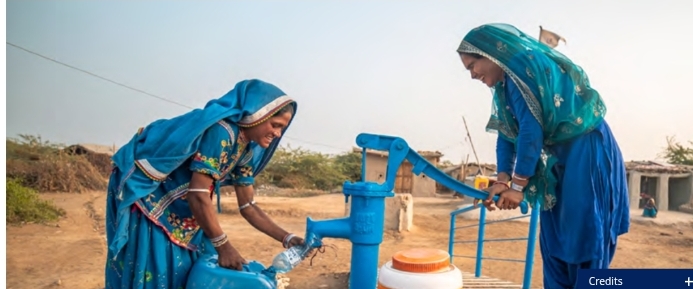A new global assessment by the World Health Organization (WHO) and the United Nations Children’s Fund (UNICEF) has found that one in four people worldwide remain without access to safe drinking water, despite progress in recent years.
This was contained in documents shared to press men on Tuesday while nothing that the report, Progress on Household Drinking Water and Sanitation 2000–2024: special focus on inequalities, was launched to coincide with World Water Week 2025.
It highlights that 2.1 billion people continue to rely on unsafe sources, with 106 million drawing directly from rivers, lakes, and other untreated surface water.
Sanitation challenges also remain severe. According to the findings, 3.4 billion people lack access to safely managed sanitation facilities, while 354 million still practise open defecation. A further 1.7 billion people have no basic hygiene services at home.
The analysis underscores that vulnerable groups, particularly those living in low-income countries, fragile settings, rural areas, minority ethnic and indigenous communities, as well as women and children, are disproportionately affected.
Read Also: Lagos govt seeks private investment to modernise water supply
Water, sanitation and hygiene are not privileges, they are basic human rights,” said Dr Ruediger Krech, WHO’s Director ad interim for Environment, Climate Change and Health.
“We must accelerate action, especially for the most marginalized communities, if we are to keep our promise to reach the Sustainable Development Goals.”
Cecilia Scharp, UNICEF’s Director of Water, Sanitation and Hygiene (WASH), warned that inequalities are undermining children’s futures.
“When children lack access to safe water, sanitation, and hygiene, their health, education, and futures are put at risk. These inequalities are especially stark for girls, who often bear the burden of water collection and face additional barriers during menstruation.”
The report reveals that while rural communities have seen some progress, such as increases in access to safe water and hygiene between 2015 and 2024, urban coverage has largely stagnated.
It also shows that women and adolescent girls remain primarily responsible for collecting water in many countries, with long daily journeys still common in parts of sub-Saharan Africa and South Asia.
With just five years left to achieve the Sustainable Development Goals (SDGs), WHO and UNICEF caution that ending open defecation and ensuring universal access to basic water, sanitation and hygiene will require faster progress.
They add that universal coverage of safely managed services appears increasingly out of reach by 2030 unless urgent action is taken.
World Water Week, held from 24 to 28 August in Stockholm and online, brings together governments, researchers, civil society, and development partners to accelerate solutions for global water challenges.



